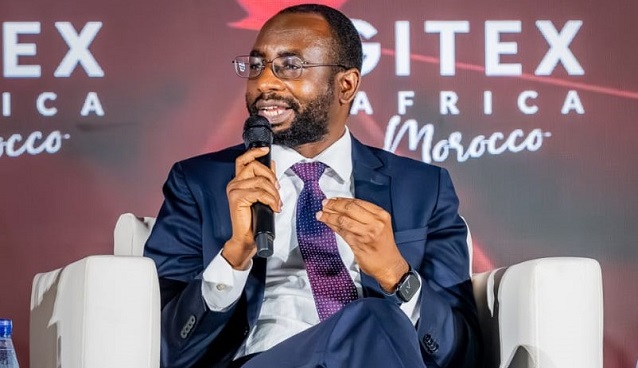E-Business
Oracle Announces OpenStack Support for Oracle Linux, VM

Oracle on Thursday introduced a technology preview of an OpenStack® distribution that allows Oracle Linux and Oracle VM users to work with the open source cloud software.
With the announcement, it provides customers with additional choices and interoperability while taking advantage of the efficiency, performance, scalability, and security of Oracle Linux and Oracle VM.
The distribution is delivered as part of the Oracle Linux and Oracle VM Premier Support offerings, at no additional cost, Oracle said in a statement.
Oracle also said it plans to work with the OpenStack community to develop and enhance its enterprise-class capabilities to meet customer demands.
Oracle added that users can install this OpenStack technology preview in their test environments with the latest version of Oracle Linux and the beta release of Oracle VM 3.3.
Customers can use Oracle Linux as the base operating system for OpenStack deployments where they can take advantage of the advanced patching capabilities of Oracle Ksplice.
OpenStack services such as compute, network, and storage management, can be downloaded from the Oracle Public Yum Server and Unbreakable Linux Network (ULN).
Oracle Linux and Oracle VM customers who deploy the product release of this OpenStack distribution can also benefit from Oracle’s enterprise-class support experience.
“Oracle is working closely with the OpenStack community across many areas,” said Wim Coekaerts, senior vice president, Linux and Virtualization Engineering, Oracle. “Oracle will continue to help deliver OpenStack capabilities to enable our customers to more efficiently deploy, manage and support their large Oracle data center deployments.”
“We are excited to see the OpenStack eco-system growing,” said Mark Collie
E-Business
Google Blocks 5.1Bn Harmful Ads in 2024, Suspends 39m Accounts

Google’s 2024 Ads Safety Report revealed how artificial intelligence is now a frontline defense against harmful online content, blocking 5.1 billion ads, restricting 9.1 billion more, and suspending over 39 million advertiser accounts, most before a single ad was shown.

The crackdown comes as scams become more sophisticated, with many leveraging AI-generated content or impersonating public figures.
Google’s advanced AI models, powered by Gemini, helped detect fraud faster than ever, spotting signs like stolen payment info, fake businesses, or coordinated scam networks.
In Africa, including Nigeria, the impact is especially important. Impersonation scams and misleading political ads remain a major concern.
In response, Google updated its Misrepresentation policy, deployed a team of 100+ global experts, and took down over 700,000 scam-related advertiser accounts, leading to a 90 percent drop in reported impersonation scams.
With nearly half the world voting in 2024, Google also removed over 10 million election-related ads for failing to meet transparency rules requiring verified identities and clear sponsorship disclosures.
In his reaction, Alex Rodriguez, general manager for Ads Safety at Google, said these numbers show what AI can do when it’s focused on safety.
“We rolled out more than 50 AI model upgrades in 2024, helping us act faster and smarter—stopping threats before users even saw them,” Rodriguez added.
While AI handles large-scale enforcement, human reviewers now focus on complex cases.
Google continues working with global regulators, industry partners, and organizations like the Global Anti-Scam Alliance to keep ahead of evolving threats.
E-Business
DG NITDA Tasks Africa to Lead the AI Revolution Through Strategic Leadership, Inclusive Innovation

The Director General of the National Information Technology Development Agency (NITDA), Kashifu Inuwa CCIE, has urged industry leaders across the continent to integrate Artificial Intelligence (AI) into their business, organisational, and operational models to unlock new opportunities, redefine leadership, and drive smarter decision-making toward making Africa deeply rooted in AI-driven innovation.

Inuwa made this call when he spoke on “Harnessing AI for Strategic Leadership” during a panel session at the Main State of the GITEX Africa 2025 held in Marrakech, Morocco.
The aim of the panel session was essentially to explore how data-driven and intelligence-led strategies can transform business models, optimise resources, and unlock new opportunities through AI-powered processes across various nations.
Speaking to an international audience of policymakers, technologists, and investors, the DG positioned Africa, particularly Nigeria as a rising force in the global AI landscape, championing a people-first and strategy-led approach to AI development and governance.
The DG argued that to be effective in today’s dynamic environment, leaders must evolve into AI-driven leaders and leverage technology not just as a tool, but as a partner in decision-making.
“AI is shifting the skills we value today, as well as the processes we use to do our daily work, so to drive strategic leadership, you need to be an AI-driven leader and find a way to use AI as a tool to create co-intelligence whereby you bring people and computers to work together to deliver your strategic vision as a leader,” he noted.
While urging leaders to combine AI with the unique strengths of their teams to deliver real business value, Inuwa stated that “Strategy must always come first, and technology second.”
He outlined four principles for effectively utilising generative AI which are inviting AI to the tale, maintaining human oversight, designing models with guardrails, and adopting a mindset of continuous improvement.
Inuwa explained that AI is invited to the table by giving it a role in organisational tasks, maintaining human oversight to correct bias and misjudgment, designing guardrails to ensure privacy ethics, and inclusivity, and adopting a mindset of continuous improvement by treating today’s AI as the least capable version that can be used.
He however warned against the risks of deploying AI systems built on data that fails to represent the diverse realities of global societies. Stressing the need for digital visibility of all cultures and citizens, he cautioned that if data doesn’t see a community, the system won’t see it either.
Introducing NITDA’s approach to governance in regulating AI through the Regulatory Intelligence Framework that is anchored on the 3 pillars of Awareness, Intelligence and Dynamism.
“In our approach to regulating AI in governance, we have a framework we call Regulatory Intelligence Framework, which as a regulator we need to be aware of the environment, we need to be dynamic because things change, and we also need to be intelligent. We need to know the data and make sense out of it,” he disclosed.
“Then we have 2 approaches, the first one is a rule-based where you can come up with certain guidelines and expect people to comply with them and we have a non-rule based, which allows them to build use cases, and based on those use cases, put the guard rails and agree on the best practices, which is always the best when it comes to AI governance,” he added.
Envisioning Africa’s AI future in the next 5 years, Inuwa painted a visionary picture where the continent will integrate AI into solving real-world challenges in every economic sector thereby leapfrogging development gaps.
Inuwa firmly averred that by augmenting human capability with AI, the continent can unlock unprecedented levels of innovation, efficiency, and inclusive growth.
“We missed the first, second, and third industrial revolutions, but this fourth one, we must lead it and not just follow.” He concluded.
Other industry leaders who shared their experiences and insightful ideas at the panel session were the Special Envoy on Technology, Republic of Kenya, Philip Thigo, CEO Pesalink, Gituku Kirika, and the Head of Africa, Open AI, Emmanuel Lubanzadio.
E-Business
NIPOST in Intensive Care, Needs Reforms Need to – Kekemeke

Nigerian Postal Service (NIPOST) is in Intensive Care Unit (ICU) and needs urgent reforms to revive it, according to Isaac Kekemeke, board chairman of the service.

Kekemeke, who spoke at a workshop organised for NIPOST staff in Abuja yesterday, added that it is now time to go the whole hog to reform and make NIPOST fulfill its destiny to compare and compete favourably with multinational postal agencies.
“The approach may not be palatable at all times but we need to take the tough but necessary decisions to exit the intensive care unit. We are either out of ICU in good health or head for the morgue. NIPOST either functions effectively now as a commercialised state operator or gets privatised, so that myself, the PMG, and a good number of you risk the loss of our jobs,” the chairman said.
No doubt, he added, “Change is not always easy as many loathe change because of the uncertainty it brings but it is in my place to urge you all to embrace the change we advocate.”

 Telecom3 days ago
Telecom3 days agoBanks, Telcos Mull New Billing Plans for USSD Airtime Payments

 E-Business3 days ago
E-Business3 days agoNIPOST in Intensive Care, Needs Reforms Need to – Kekemeke

 E-Financial3 days ago
E-Financial3 days agoLeadway Partners Firm to Launch Retail Insurance Product for Women

 General News3 days ago
General News3 days agoFG Launches Survey to Encourage Nigerian Digital Firms Spread Across Africa

 News3 days ago
News3 days agoDG NITDA Urges Foreign Investors to Tap into Nigeria’s Digital Future

 Broadcasting22 hours ago
Broadcasting22 hours agoMultiChoice Brings Easter Home with Dedicated Pop-Up Channel

 Telecom22 hours ago
Telecom22 hours agoSalesforce Revolutionizes Business Intelligence with AI-Powered Tableau Next

 News22 hours ago
News22 hours agoAirtel Smartcash Set to Power Stress-Free Easter with Seamless Cashflow



























